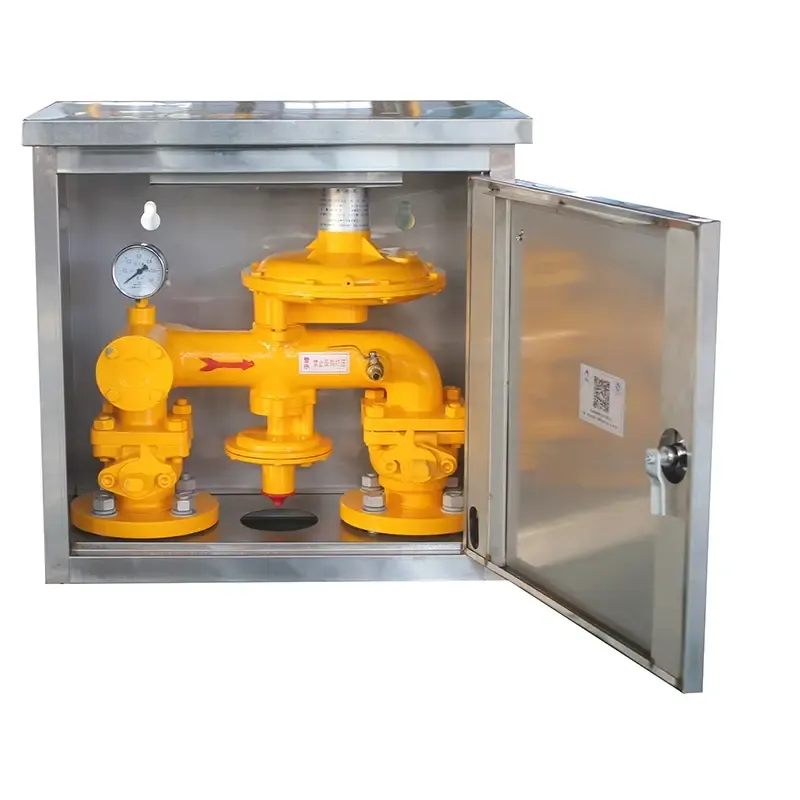
Sep . 26, 2024 01:53
Back to list
gas pressure vessel
Understanding Gas Pressure Vessels Safety, Design, and Applications
Gas pressure vessels, often referred to simply as pressure vessels, are critical components in various industries, including oil and gas, chemical manufacturing, and energy production. These specialized containers are designed to hold gases or liquids at pressures substantially different from the ambient pressure, making them essential for a variety of applications ranging from storage to transport and processing of gases.
What is a Gas Pressure Vessel?
A gas pressure vessel is a container designed to hold gases at an internal pressure that is higher than atmospheric pressure. These vessels are constructed from various materials, including metals like steel and aluminum, as well as composite materials, depending on the specific requirements of the application. The design of these vessels must adhere to strict industry standards to ensure that they can operate safely and efficiently under high-pressure conditions.
Importance of Design Standards
The design and construction of gas pressure vessels are governed by international codes and standards, such as the ASME (American Society of Mechanical Engineers) Boiler and Pressure Vessel Code. These standards provide guidelines for the material selection, design calculations, fabrication, inspection, and testing of pressure vessels. Adherence to these standards is crucial, as the failure of a pressure vessel can lead to catastrophic consequences, including explosions, toxic gas releases, or environmental damage.
Key Design Considerations
1. Material Selection The choice of material is critical and depends on factors such as the type of gas being stored, the operating temperature, and pressure levels. Materials must exhibit high tensile strength and resistance to corrosion and fatigue.
2. Pressure Rating Each gas pressure vessel is given a specific pressure rating, indicating the maximum pressure it can safely withstand. Engineers calculate this using various methods, ensuring that the vessel will perform reliably under expected service conditions.
gas pressure vessel

3. Temperature Effects Different gases behave differently under varying temperatures. It is essential to consider the thermal expansion of gases and the potential impact of temperature fluctuations on the vessel and its contents.
4. Safety Features Pressure relief valves, burst discs, and other safety mechanisms are incorporated into the design to mitigate the risks associated with overpressure scenarios. These features are critical for protecting both the vessel and surrounding personnel.
Applications of Gas Pressure Vessels
Gas pressure vessels are utilized in a wide array of applications. In the petrochemical industry, they store natural gas and other volatile substances under high pressure to facilitate transport and processing. In the energy sector, gas storage vessels play a vital role in energy production, helping to balance supply and demand by storing excess gases that can be released during peak demand periods.
In industrial settings, pressure vessels are essential for the operation of gas separators, reactors, and compressors. They are also used extensively in refrigeration systems, where they maintain the required pressure for refrigerants and gases crucial to the cooling process.
Safety Management
Given the potential hazards associated with gas pressure vessels, ongoing safety management is paramount. Regular inspections, maintenance, and adherence to operational protocols are essential to ensure the safe operation of these vessels. Training for personnel working with pressure vessels is also critical to minimize the risk of accidents and enhance overall safety culture within organizations.
In conclusion, gas pressure vessels are indispensable in numerous industrial applications, requiring meticulous design and strict adherence to safety standards. As industries continue to evolve, the demand for more efficient and safer pressure vessel technologies will undoubtedly grow, further reinforcing their significance in modern engineering and industrial processes. Understanding their design, operation, and safety considerations is essential for anyone involved in the relevant sectors.
Latest news
-
Safety Valve Spring-Loaded Design Overpressure ProtectionNewsJul.25,2025
-
Precision Voltage Regulator AC5 Accuracy Grade PerformanceNewsJul.25,2025
-
Natural Gas Pressure Regulating Skid Industrial Pipeline ApplicationsNewsJul.25,2025
-
Natural Gas Filter Stainless Steel Mesh Element DesignNewsJul.25,2025
-
Gas Pressure Regulator Valve Direct-Acting Spring-Loaded DesignNewsJul.25,2025
-
Decompression Equipment Multi-Stage Heat Exchange System DesignNewsJul.25,2025

